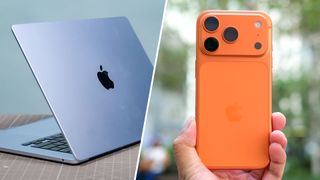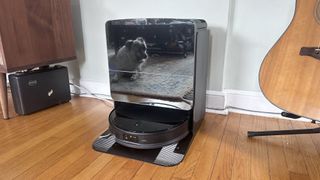Home
Explore Home
Latest about Home

Massive Apple leak reveals over 30 upcoming products — iPhone Fold, cheap MacBook, smart glasses, AirTag 2 and more
By Jason England published
An unreleased build of iOS 26 has leaked over 30 new Apple products that are being worked on — including AirTag 2, iPhone Fold and Apple smart glasses.

People are using beet juice to de-ice their walkways, and it's not as crazy as it sounds
By Cynthia Lawrence published
I’ve just discovered a strange hack for de-icing snow — and it uses this popular healthy juice.

The Ninja air fryer I recommend to all my friends is back to its all-time-low Black Friday price
By Millie Fender published
Black Friday is long gone, but the Ninja Crispi is still at its lowest ever price with this $40 holiday saving.

You're not out of kitchen space, you just need this $3 IKEA find that holds everything from utensils to dish towels
By Annie Collyer published
Store more while spending less thanks to this $3 IKEA find thats new to stores this month

The surprising effects of using too much de-icing salt on your driveway
By Grace Dean last updated
How to keep things effective and eco-friendly

This Roborock robot vacuum is my favorite Roomba alternative and there's a massive 43% off at Amazon right now
By Cynthia Lawrence published
I test robot vacuums for a living, and this Roborock robot vacuum and mop is the one deal I’d snap up right now.

IKEA's new wireless charger looks like a donut and costs $9, but it's surprisingly capable
By Millie Fender published
IKEA's new wireless chargers start at $9 — they're cute and functional with Qi2.0 compatibility.

We’ve tested dozens of robot vacuums for pet hair, and these are the ones I recommend
By Cynthia Lawrence last updated
Keep your floors spotless and fur-free with the best robot vacuums for pet hair.
Here at Tom’s Guide our expert editors are committed to bringing you the best news, reviews and guides to help you stay informed and ahead of the curve!


